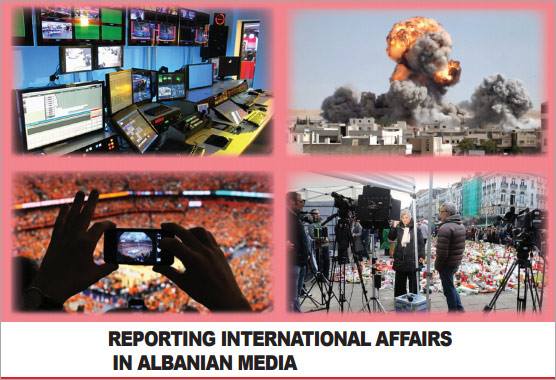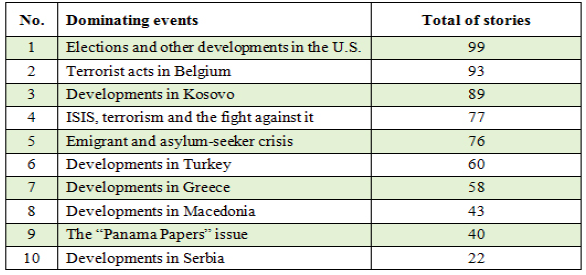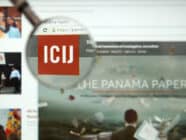Albania’s foreign news coverage follows a pronounced pro-European and pro-American agenda, according to new research.
While national issues dominate the country’s news agenda, major international news stories, such as the American presidential election, terrorism and the Panama Papers are also widely reported, a new study shows.
Research by the Albanian Media Institute examines how the country’s media prioritises reporting and also provides an insight into the way media organisations in small countries cover foreign news.
The Institute examined the development of international news reporting by looking at four national newspapers – Panorama, Gazeta Shqiptare, Mapo and Shqiptarja.com – for a three month period from March to May 2016. It found that the news agenda and editorial priorities reflect the country’s interests, political ties and geopolitical strategy.
With a population of around three million, Albania has a surprisingly varied mix of media, including around 100 newspapers, an increasing number of new digital platforms and a public broadcaster, RTSH. Television remains very influential and there are nearly 60 private TV stations.
Albania recently emerged from half a century of communist isolation and adopted the liberal-democratic system. It is gradually becoming part of western Europe and joining Euro-Atlantic institutions. After NATO membership, the most important challenge for the country is to meet the standards required to become an EU member. According to a 2015 survey, the vast majority (91%) of Albanians would vote in favour of EU membership.
The research found the international news agenda largely reflects the process of Albania’s integration into the Euro-Atlantic partnership. Editorial priorities are also shaped by the collective Albanian conscience which feels the country is European, and that its fate is closely linked with developments in the western hemisphere.
Commentators have also noted a pronounced pro-American spirit in the country, and the study demonstrates that developments in the United States dominate coverage, particularly the recent presidential election.
The high number of stories about the Trump-Clinton election campaign during the period studied, pushed US coverage to the top of the table (see below). These stories made up the majority of US content. In Albania, it seems, the media’s practice is to follow “the giant friend” – in this case the US – in contrast to some other small European countries which tend to follow “the next-door giant” – an expression used first by the Swiss communication researcher Ulrich Saxer.
Stories about terrorism, in particular, the terrorist attacks in Belgium in March 2016, were the second most prominent. According to the research, all four main Albanian newspapers followed these events with intensity, responsibility and seriousness, devoting a lot of space to them. During the monitoring period, there were also terrorist acts in the Middle East but these attracted less attention.
Some commentators have spoken of double standards being applied by the Albanian media. They argue that Albanian media dedicates less space to terrorist attacks in the Middle East than it does to such attacks in Europe. But the study shows that the media generally tend to concentrate on events which were closer to home, not simply geographically but also culturally, and with a perspective shared with European countries.
Stories about ISIS are prevalent. Albania has joined the attack against them, considering it a vital battle for the future, this is reflected in the foreign reporting studied.
The papers also covered a considerable number of stories about Albania’s neighbours, such as Kosovo, Turkey, Greece, Macedonia and Serbia. A relatively large number of stories from Turkey (60) also reflects Albania’s interest in this important geo-strategic partner which, in certain contexts, is itself seen as a “next door giant” or even a ‘big brother’ figure – in the relationship sense rather than as a controlling force.
The two other topics considered important are the migrant crisis and the Panama Papers. The issues of migration and asylum resonate with developments in Albania, as well as with the growing tendency for Albanians themselves to emigrate because of economic problems at home. The Panama Papers exposé chimes with Albania’s own domestic problems regarding ‘dirty money’ being laundered into dubious investments.
pic credit: Albanian Media Institute
Tags: Albania, Belgium attacks, Brussels terrorist attacks, foreign reporting, international affairs, Isis, Media Industry, Middle East, panama papers, Terrorism, US, US Presidential election














































